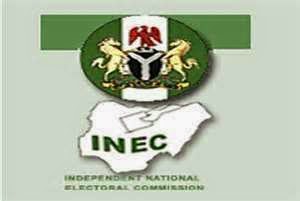INEC’s culpability in proliferation of political parties By Eugene Enahoro
Perhaps the biggest single indicator that Nigerian democracy is making slow and steady progress along the road to nowhere, is the registration by the Independent National Electoral Commission (INEC) of an additional 23 approved Political Parties. The total number of Parties qualified to contest the 2019 elections is now 91. The trending joke about INEC is that it is easier to register and obtain approval for a Political Party than to register and obtain a Permanent Voter’s Card (PVC)! Not surprisingly suspicions have arisen that the reasons for Party new registrations six months to the upcoming national elections not be altogether altruistic.
Indeed it’s possible there could be ulterior motives. Some cynics believe that increasing the number Political Parties at this time has little to do to do with widening the political space or deepening democracy, but rather is more about attempting to justify INEC’s controversial budget of N242 Billion which will make the upcoming elections the most expensive in Nigeria’s history. People’s Democratic Party (PDP) spokespersons claim that the real purpose is to create an unwieldy and confusing ballot paper which lists parties in alphabetical order. Thus the ruling All Progressives Congress (APC) would be easily found near the top of a cumbersome ballot paper while PDP the main opposition Party will be lost somewhere in the mass of irrelevant Parties.
Even though such views remain mere speculation, the registration of more political parties at this time is ill-advised even if the motives may be well-intentioned. In an attempt at self-defence INEC officials reject blame simply because the Constitution doesn’t limit the number of Parties. This argument is fallacious because the proliferation of Parties isn’t a constitutional matter. INEC are culpable because they are empowered under the Constitution to produce guidelines for Party registration. The current guidelines issued in 2104 have two inherent defects. First, in Section 3 (Conditions for Registration as Political Party), there is quite absurdly no requirement for the proposed Party to articulate any political ideology or guiding philosophy. The promoters are simply required to submit their manifesto to INEC. Second, in Section 8 (Registration by the Commission) which outlines the reasons why applications may be rejected, INEC is limited to simply verifying whether or not the information supplied in the application is true.
Quite inappropriately there is no provision for the Commission to reject an application on the basis that the manifesto or aims and objectives of a prospective party are identical to that of an existing one. Consequently, there is really no discernible difference between the manifestos of the proliferating number of Parties. All contain the well-worn clichés of “infrastructure development”; “youth and women’s empowerment”; “Economic management”; “improved health and education” etc. etc. It’s disingenuous for INEC officials to claim in self-defence that advanced democracies such as UK and USA also have many Parties.
Although it’s true, most of them aren’t national, but rather are fringe Parties formed for special interest groups or local politics. INEC in their wisdom insist that in Nigeria Political Parties cannot be registered purely for special interests or regional politics but must be national in outlook. This implies that they should adhere to some sort of ideology. Political ideology is broadly divided into three schools of thought; basically it’s about Right-Wing (Conservative in Britain, Republican in the US); Left-Wing (Labour in Britain, Democrat in the US); and Centrist (Liberal Democrats in the UK) ideology. That is why in mature democracies where politics is grounded in ideology there are either three, or two main Parties, with the Centralists often losing out.
Nigeria should brace itself for even more Parties as INEC say they have merely “suspended” further registrations until after the 2019 general elections. If only a small fraction of the pending applications are approved Nigeria could eventually reach a situation in which there are over 109 Political Parties and the Senate comprises one member from each. How then would the contentious issue of “majority party” be resolved? In the absence of the requirement to ascribe to any known political ideology, INEC’s Party registration revolves around the ability to spend humongous sums on office accommodation nationwide. The reason why Political Parties are proliferating is because success in Nigerian politics is the easiest guaranteed method of amassing wealth.
To paraphrase Franklin Roosevelt: if a Political Party does not have its foundation in the determination to advance an ideology which is right and is moral, then it is not a Political Party, it’s merely a conspiracy to seize power. Until such a time as INEC perfects the registration guidelines to take into consideration political ideology and restrain Parties from ascribing to similar ideologies, there is every reason to expect that applications for registration of new Parties will continue unabated.


Comments
Post a Comment